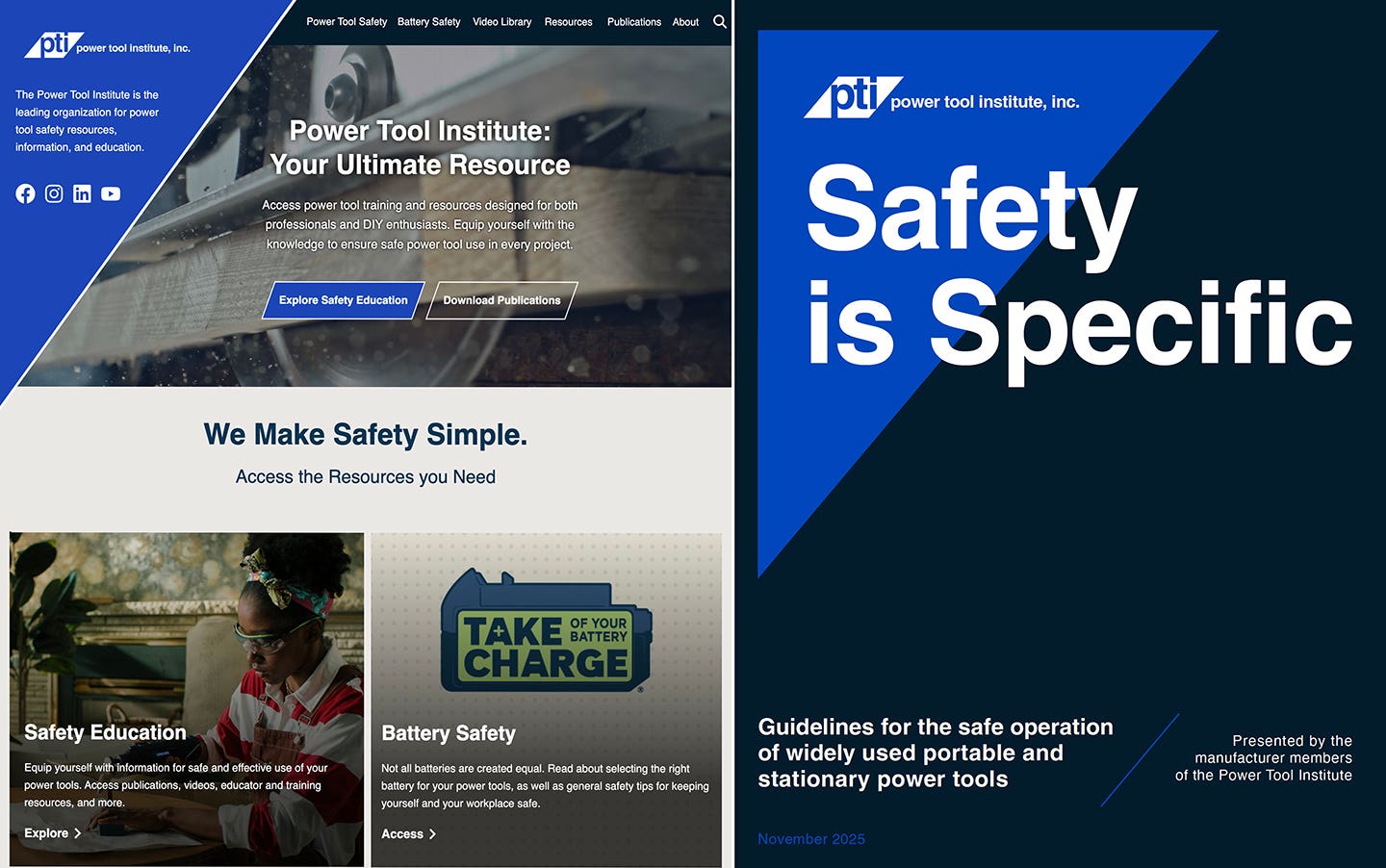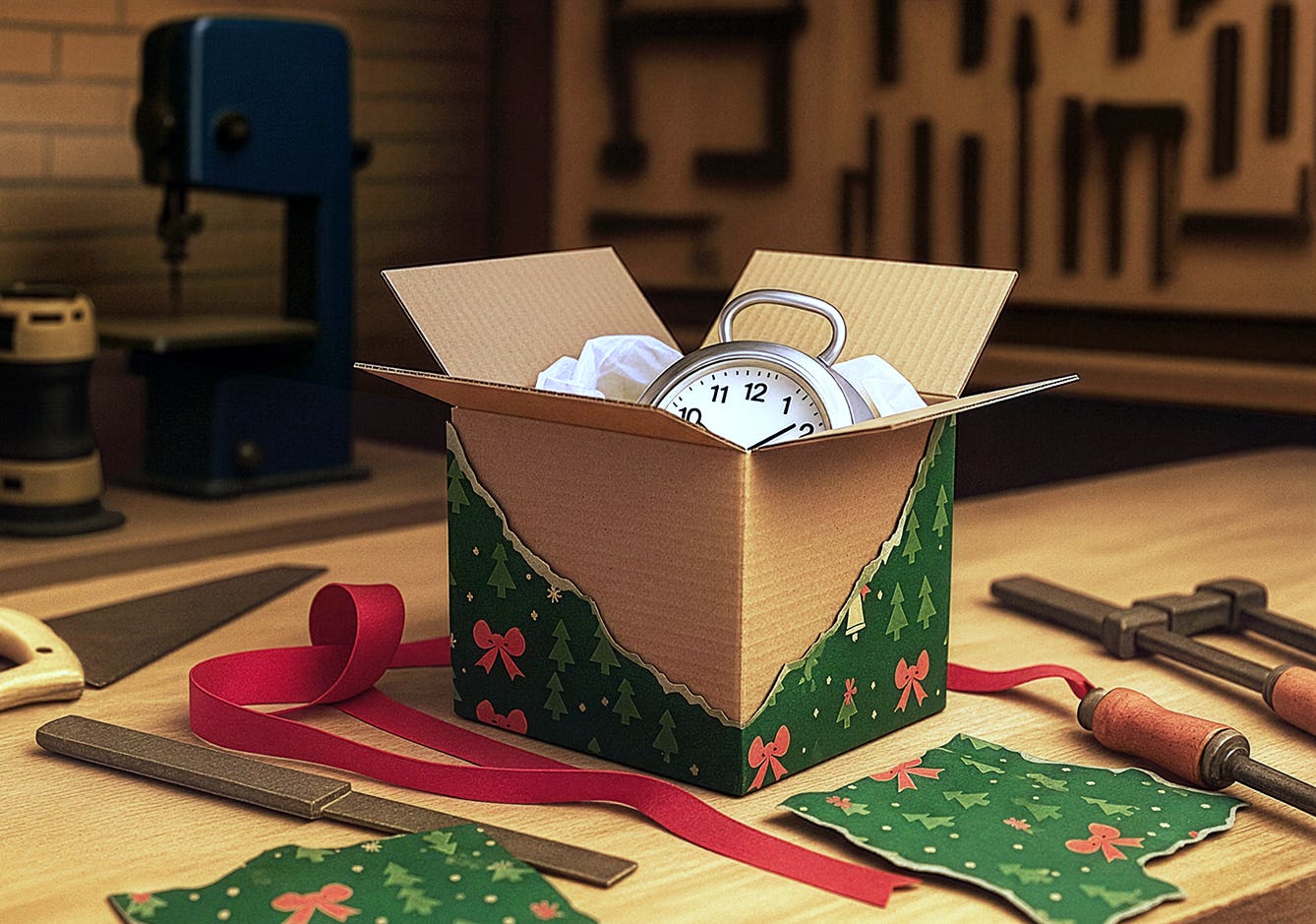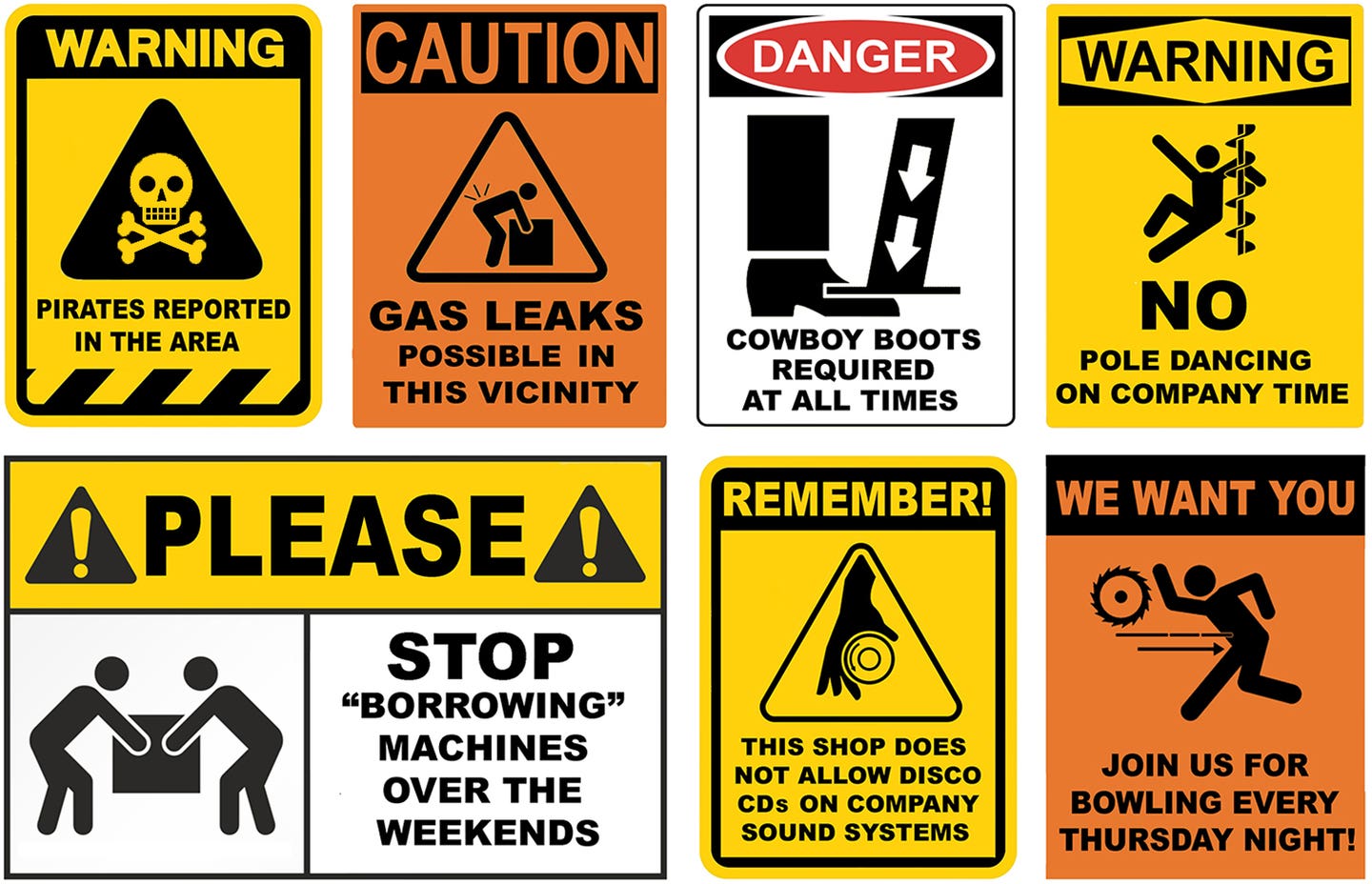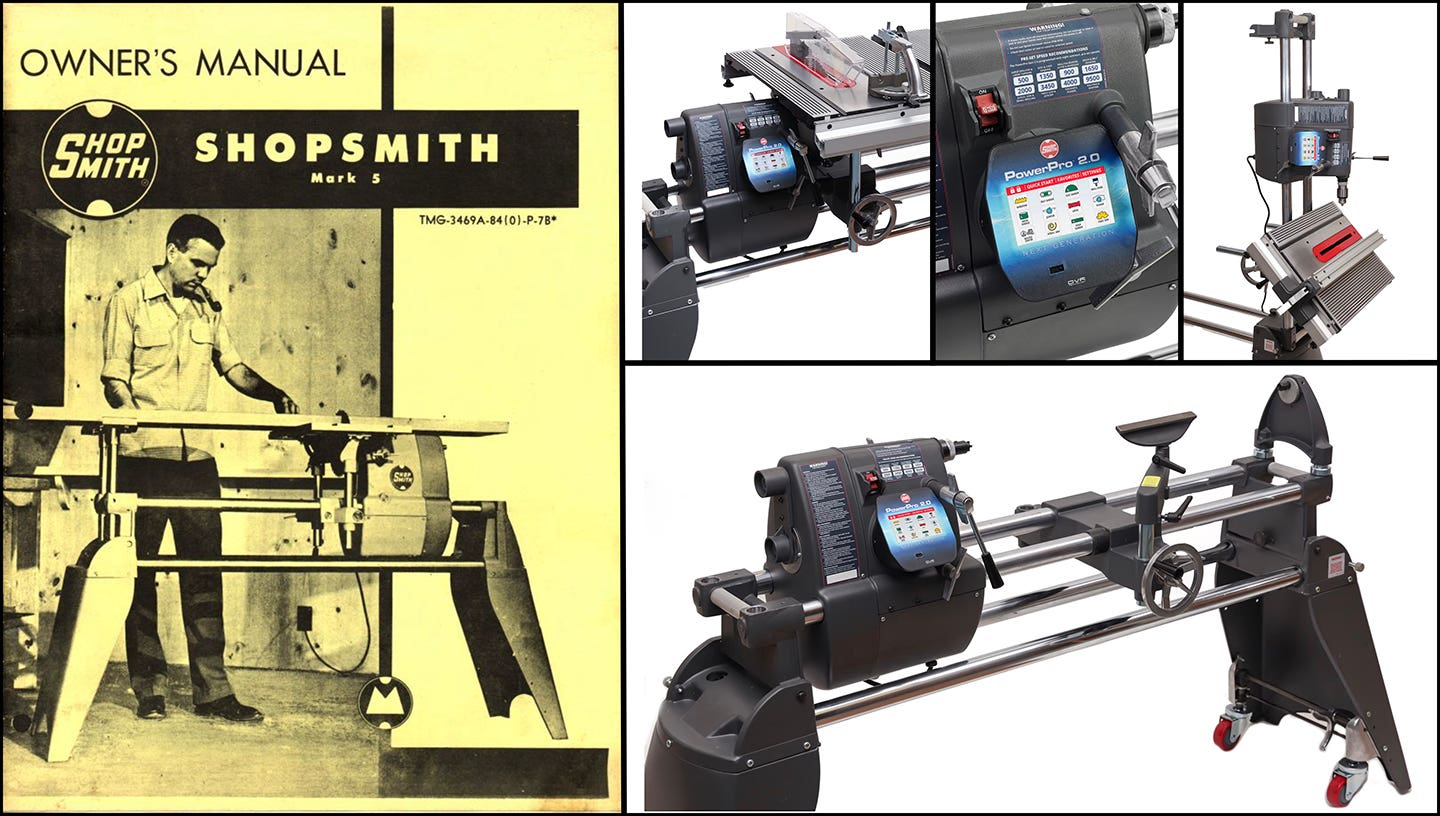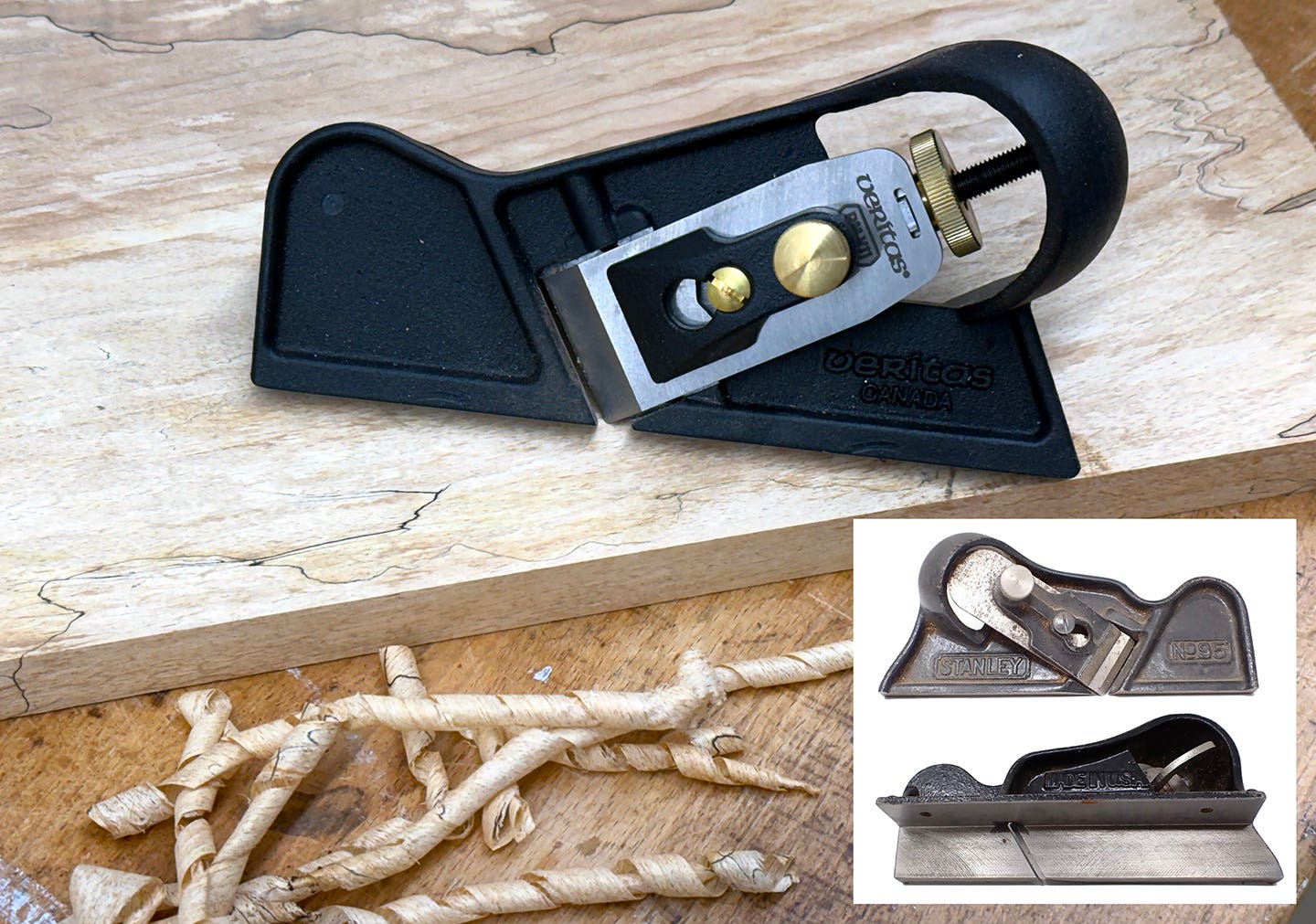Have you had your woodworking ephiphany?
Anagnorisis is a moment in a play or other production when a character makes a critical discovery. In the Greek context, this experiential uncovering is applied both to the person’s…
Anagnorisis is a moment in a play or other production when a character makes a critical discovery. In the Greek context, this experiential uncovering is applied both to the person’s true identity and the true nature of their situation or what they stand for. It is most famously explored in the story of Oedipus, when he realized that he was both his father’s murderer and his mother’s lover. In modern vernacular, we would describe this moment as an epiphany, a revelation of sorts when all the puzzle pieces in a person’s life seem to come together in one moment of time giving the receiver a clear direction on something that pertains to their life.
You don’t need to be a character in a play to experience anagnorisis. It happens to all of us throughout the course of our life. We make thousands of decisions every day. Although most of these decisions have a clear purpose and function, they are benign in terms of life-changing activity. In other words, these are the choices made on autopilot. This list would include things like when to blink your eyes, feed your stomach and go to sleep. All necessary to sustain life, but not empowered to be life-changing in the overall scheme of life events. Because the bulk of our decisions are harmless, it’s easy to overlook the potential ramifications of decisions that do alter how our life turns out.
When I was in my early 20s, I stumbled across a book about a collection of dedicated craftspeople. The career of these artisans, who made their living from the craft of woodworking, was explored from the pieces they made to the way they lived their life. I was instantly sold. I knew at that point I would dedicate my life career to the craft I loved doing most. Although I was very conservative in making long-term commitments, I was convinced this was my chosen path. Like most, my moment of discovery was revealed in a split second through the fabric of time. Even though that revelation was succinct and happened very quickly, it was built upon a foundation that had been laid in previous years.
Discovery is only the beginning of anagnorisis. The epiphany might come instantly after discovery or years later once things have been put into motion. For instance, let’s suppose you’re looking for something that is located in a dark and unfamiliar space. By instinct, you search for a light source to help you find your way. Immediate help — or revelation — comes when you locate a light switch that floods the room with plenty of illumines to help in your quest. The search will generally take longer if you only have a flashlight or, worse, a book of matches. If we liken the light source to the illuminating nature of anagnorisis, it’s easy to disseminate how it spills into our life at varying degrees. Because we don’t necessarily have control over how we receive information (due to the infinite circumstances that bombard our lives), we must always be prepared to receive and analyze self-discovering stimuli.
So what does all this mean for the average woodworker or craftsperson? Plenty. The only way you can grow as an individual (and business) is when you know who you are and what your purpose is (or that of your business). Anybody can hang up a shingle and announce their business plans, but that does not guarantee success. Without a real vision or purpose, a business cannot succeed. Anagnorisis helps you discover what that vision is. It doesn’t matter if you’re a seasoned veteran of the trade or just beginning your journey, discovering your true situation and identity are keys to your success. To further explain its importance, consider the new startup venture and a well-established company.
When a company is freshly formed, there are a lot of questions about what the future holds such as: Is there a large enough market share for our niche? How do we find and reach our client base? What forms of marketing are best for what we do? Even with experience in the field, these uncertainties are daunting. They can be the difference between success and failure. Most are familiar with the important concept of knowing your enemy when facing them in battle. Business is a battle every day. And the better you know your “enemy” (competition, market, customer base) the better prepared you’ll be in navigating the many challenges that lie ahead.
But what about knowing yourself? Is that not of equal importance? How can you possibly go into a fight not even knowing what your own strengths and weaknesses are? You can’t. Although it is not always a pleasant experience, this moment of self-discovery exposes vital information you need to both begin and sustain the journey forward.
I remember talking to my grandfather in the early years of my business. Although he was a surly ole’ cuss, he enjoyed tremendous success as a businessman. In testing my resolve to run a business, he once challenged my approach to making money. Knowing there was never a right answer to be given to the man, I gave him my honest appraisal of how I intended to carry out my affairs. True to form, he used his success as an example to “advise” me not only about my folly, but how much better his approach was. I’m not saying there was nothing to be learned from the guy. After all, he had a mountain of money and 50 years of business experience. It was the simple fact that he had forgotten not only what it was like to be an upstart, but also his anagnorisis experience. Once that happens, you become stale and irrelevant. It would be like turning off the light in a dark room because you’re familiar with the space. The thing is, we don’t control what goes on around us and need the light anagnorisis provides. Well-established businesses can never forget who they are and where they came from. If they do, they will lose touch with their market base.
On the surface, the term anagnorisis is nothing more than a big word that makes us feel special because we know what it means. Its importance lies in the result of what happens to that which the word describes. The key to how it is applied rests with us individually. We can either look for the clues that reveal our destiny or ignore them through an arrogance of self-righteousness. Recognizing your true situation and identity leads you on the path towards success. It knows no other direction. Self-discovery will bring peace into your personal life. It will also generate a stronger return on your investment because you’ll have a comprehensive idea of your strengths and weaknesses.
With a clearer understanding of your true identity and situation, both you and your clientele will be better served.
David Getts is a certified kitchen designer and owner of David Getts Designer Builder Inc. in Seattle.
This article originally appeared in the January 2014 issue.



